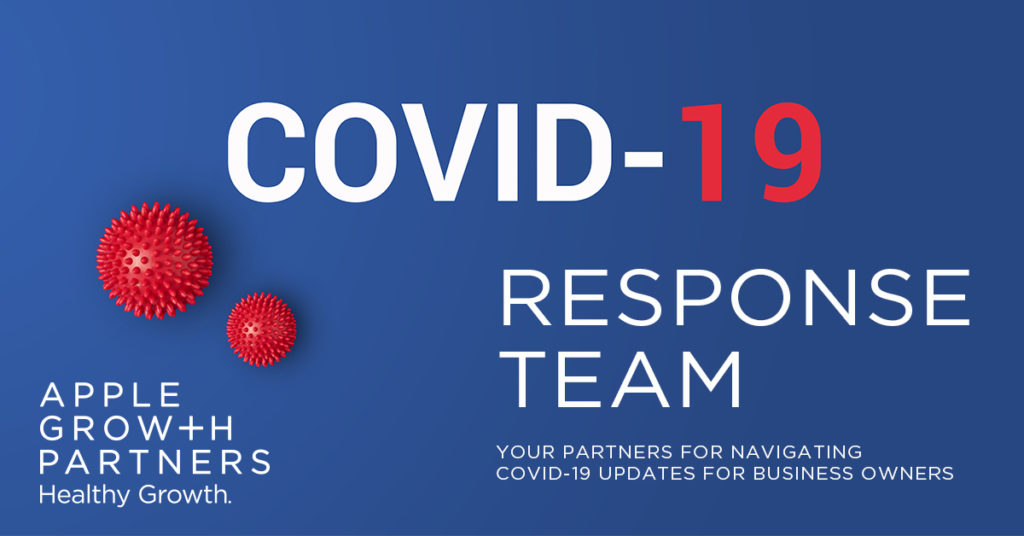
Tuesday, May 12, 2020
In updates dated May 6, 2020, in the Provider Relief Fund General Distribution FAQs, HHS made important clarifications. Health care clients should read the entire FAQ, as the following are highlights.
Who is eligible to receive Provider Relief General Distributions – Must have billed Medicare on fee-for-service basis (Parts A or B) in 2019 and provide or provided after January 31, 2020, diagnoses, testing or care for individuals with possible or actual cases of COVID-19. HHS broadly views every patient as a possible case of COVID 19.
Attestation Deadline – Changed from 30 days to 45 days from date payment is received to make the attestations in order to retain the payment. If the attestation is not made, the funds must be rejected and returned.
Patient Billing – Clarified that providers may not bill out-of-network for actual or presumptive COVID-19 patients for amounts greater than if in-network patients. A presumptive patient is defined as one whose “medical record documentation supports a diagnosis of COVID-19, even if the patient does not have a positive in vitro diagnostic test result in his or her medical record.”
HHS confirms that providers are not so restricted with respect to billing insurers.
Recoupment of payments – The Provider Relief Fund and the Terms and Conditions require that recipients be able to substantiate that lost revenues and increased expenses attributable to COVID-19, excluding expenses and losses that have been reimbursed from other sources or that other sources are obligated to reimburse, exceed total payments from the Relief Fund. HHS As of now, HHS, generally, does not intend to recoup funds as long as a provider’s lost revenue and increased expenses exceed the amount of Provider Relief received. HHS reserves the right to audit to ensure that this requirement is met and collect any Relief Fund amounts that were made in error or exceed lost revenue or increased expenses due to COVID-19.
No specific examples are provided.
HHS is expected to provide additional guidance on the manner of reporting expenses and losses associated with CARES Act payments. This guidance should be available in advance of the June 30, 2020 reporting deadline for recipients receiving payments of at least $150,000.
Returning payments – There are two options. Under either option, the provider must initiate the return via the Attestation portal.
- Electronic payments may be returned by initiating an ACH return with the bank where the funds were deposited. The specific return code is “R23 -Credit Entry Refused by Receiver.”
- Payments made by paper check shall be destroyed by the provider prior to deposit. If deposited, a check should be paid an sent to UnitedHealth Group.
Apple Growth Partners’ published material provides general coverage of its subject area and is presented to the reader for educational purposes based on the most current regulatory information available at the time it was written. All communications, whether written or oral should be reaffirmed prior to the submission of any application. All information in this published material and on our website is provided in good faith; however, we make no representation or warranty of any kind, express or implied, regarding the accuracy, adequacy, validity, reliability, availability, compliance with any law (federal, state or local) or professional standard or completeness of any information. We assume no responsibility to any recipient of this material to correct or update its contents for any reason, including changes in any law or professional standard. It is not intended to be audit, tax, accounting, advisory, consulting or investment advice. The information in this article is also not a substitute for legal advice and may not be suitable in a particular situation. Consult your attorney for legal advice.
Our articles, other published materials and website occasionally contain links to other web pages. Links to organizations and government agencies are provided as a convenience to our readers. The firm does not endorse and is not responsible for any third-party content that may be accessed from its website and does not recommend or endorse the use of any third-party’s services. The links are to be accessed at the user’s own risk, and the authors of this website make no representations or warranties about the content of these links.

